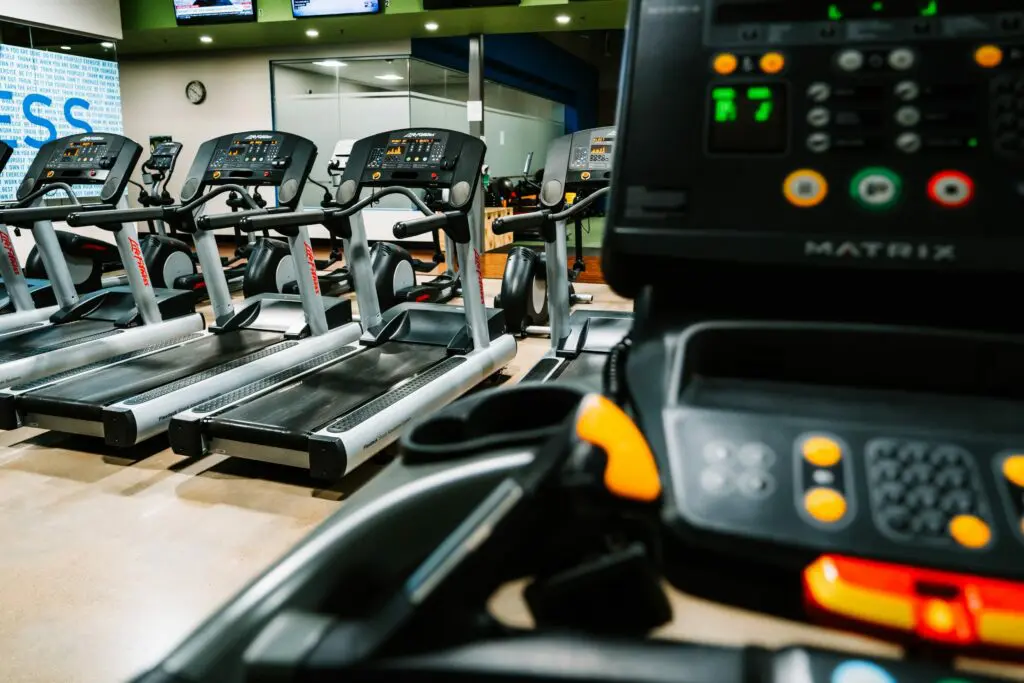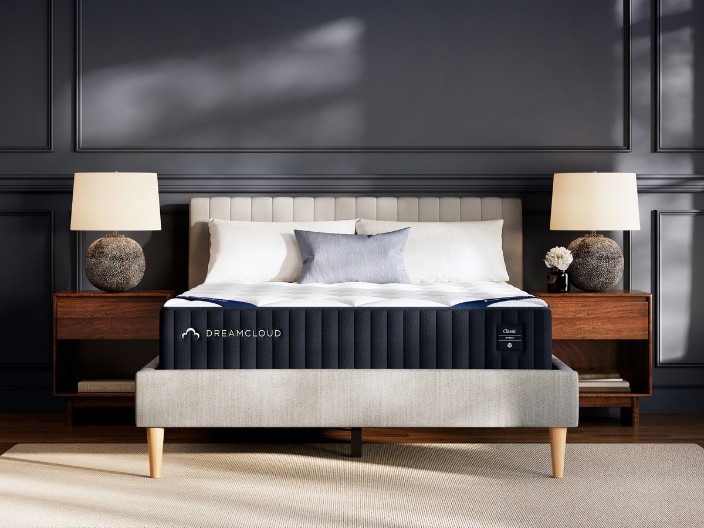Morning Headaches: Why Am I Waking Up With Headaches?
Share
Fact checked
Reviewed by experts
Updated
December 26, 2022
Quick read
4 mins to read
List of Content
Do you often have a headache when you wake up? Every 1 out of 13 people wakes up with headaches. Generally, morning headaches affect women more than men and are frequently associated with the 45 to 64 age group. A pounding headache, that too in the morning makes it more challenging to get up from your bed.
What causes headaches? There can be many reasons for morning headaches everyday—health problems, eating habits, lifestyle, to name a few. Continue reading to learn everything about waking up with a headache.
What Causes Morning Headaches?
Why do I wake up with a headache? There can be numerous causes of headaches. It could be your lifestyle habits, health problems, diet, alcohol consumption, teeth grinding, or anything else.
When you transition from sleep to wakefulness, some parts of your brain begin to wake up. Your brain becomes more sensitive to changes in your body and your surroundings. In this hypersensitivity period, you are more prone to pain and get a headache after waking up.
Here’s a list of a few other reasons for headaches.
1. Sleep Apnea and Snoring
Obstructive Sleep Apnea affects between 2 to 9% of adults. Sleep apnea or snoring causes you to stop breathing at times during the night. This might cause a headache the following day. To cure this problem, you can use equipment like a continuous positive airway pressure machine. Headaches from sleep apnea usually last within 30 minutes.
Symptoms of sleep apnea:
- Dry mouth
- Moodiness
- Snoring
- Frequent urge to pee at night and more.
2. Insomnia
Insomnia prevents you from getting quality sleep or sleep at all during the night. Sleep deprivation is a significant cause of morning headaches. Curing insomnia can lead to better sleep and eventually improvement in morning headaches.
To cure insomnia, consult a doctor. They might advise you to track your sleep patterns, take medicines, or get therapy.
3. Circadian Rhythm Disorders
Circadian Rhythm Disorder makes you more prone to morning headaches. Misalignment with the standard sleep-wake cycle can cause Circadian Rhythm Disorders. This misalignment leads to improper sleep, and hence the headaches as a result.
4. Migraine
Migraine can be one of the causes of morning headaches for your morning headaches. In the US, 29.5 million Americans have migraines. This throbbing headache resists you from functioning properly. 50% of the people with migraines or other tension-type headaches have insomnia.
5. Oversleeping
Oversleeping is not as fun and refreshing as it sounds. Both sleep deprivation, as well as a long sleep, are associated with headaches in the morning. Headache from sleeping too much is a possibility. An ideal sleeping duration is 7-9 hours.
6. Hangover
Drinking heavily can cause disturbed sleep and severe morning headaches. Even having less than six drinks can affect your sleep and lead to headaches.
Usually, alcohol makes you sleep faster, but you get disturbed sleep. It may even lead to waking up with a headache in the middle of the night. Alcohol increases the urge to urinate and loss of fluid, which generally results in dehydration. Headache is a common side effect of dehydration.
7. Tension
What causes tension headaches? Your sleeping position can create tension in your body. This can lead to poor sleep. It can lead to waking up with headaches and neck pain. To avoid pressure, you can use a supportive pillow and mattress.
8. Bruxism or Teeth Grinding
Grinding your teeth or bruxism can cause a mild headache in the morning. Some people deal with this disorder at night, also known as sleep bruxism.
Teeth grinding can also be related to other disorders like sleep apnea. It may cause teeth damage, jaw pain, and of course, headache the following day. You can cure bruxism by using a mouth guard or stress reduction techniques.
9. Medications and Supplements
Medications and supplements can interfere with your sleep, causing disturbed sleep at night. Headaches can also be a side effect of certain medications. Withdrawing from a prescription can also result in headaches.
Medications that can cause headaches to include:
- Anti-anxiety medicines
- Aspirin
- Opioids
- Paracetamol, and more.
10. Temporomandibular Joint (TMJ)
The primary role of TMJ is to attach your jaw to your skull. Pain in this joint or the surrounding area by activities like bruxism, chewing gum, and alike can lead to a severe headache.
11. Tumor
Morning headaches and nausea can be troublesome. Regular severe headaches might make you google if it’s a tumor. Most probably, it’s not a tumor. 5 in 1,00,000 people are diagnosed with tumors every year.
- Nausea
- Depression
- Concentration problems
- Seizures
- Speech problems
- Vision-related problems
- Swelling around the eye
- Weakness
- Severe, changing, constant headaches
Consult a doctor soon if you have any of these symptoms.
12. Strained Muscles
Strained muscles in your neck can cause headaches. You can use proper pillows and change your sleeping position to relieve the pain. Try different pillows and find the one that’s most suitable for you.
Treatment for Headaches in the Morning
If you have headaches every morning, consult your doctor.
But how to cure headache at home? Identify the trigger for your headaches, and prepare a diagnosis plan. You can record your symptoms and sleeping habits in a sleep diary to help your doctor.
Other than that, you can take care of your sleep hygiene.
- Consistent Sleep Schedule
If you keep waking up with headaches, get enough sleep, at least 7-8 hours. Try to sleep and wake up at the same time daily.
- Minimize Caffeine and Alcohol
Having alcohol or coffee in the evening can keep you awake all night. As a result, it can lead to waking up with bad headaches.
- Exercise Daily
Make sure you work out several hours before you try to sleep. Being active around bedtime can resist you from sleeping.
- Control Your Environment
Your sleep environment should be quiet, dark, and calm. Use an eye make, or listen to white noise if you cannot control your surroundings for some reason.
When to See a Doctor
You can cure your morning headaches by following a good sleeping routine and taking care of your diet. However, if you still have headaches and have persistent symptoms and severe pain, it’s time to see a doctor. Record your sleeping habits and symptoms in a sleep diary to help the doctor understand your problem.
Conclusion
It’s annoying when you wake up with a headache, but luckily, it’s curable. Good sleeping hygiene and treatment can minimize your headache or completely cure them. If nothing helps you, consult a doctor to determine a treatment for your headache.
FAQs
Yes, when you are dehydrated, the brain can temporarily contract. This causes the brain to pull away from the skull, causing a dehydration headache.
Yes, being hungry for long periods can result in headaches. When you are hungry, your blood sugar level drops. A hungry stomach can also trigger a migraine.
Yes, alcohol causes migraines. Alcohol can make you sleep quickly, but you experience disturbed sleep throughout the night. The following day, you wake up with a pounding headache.
Yes, anxiety headaches are common. Anxiety can cause stress and worry, which can give you tension headaches.
This website does not offer medical advice nor professional medical services; rather, it is provided solely for educational, informational, and/or entertainment purposes. Individuals seeking medical advice should consult a licensed physician. The information provided should not be used for diagnosis or treatment of any condition, disease, or injury. When you have a medical condition, you should always talk to licensed doctor or other certified medical professional. You should never delay seeking professional medical advice or treatment based on the contents of this website. Call 911 or immediately go to the nearest emergency room if you think you may have a medical emergency. The contents of this website are provided “as-is”, Sleep Authority and its parent, subsidiaries, affiliates, employees, contributors disclaim any warranty of the information contained herein. Please contact using contact form to report any errors, omissions, misinformation, or abuse.
Sleep Authority is brought to you by Resident, the company that brings you Nectar, DreamCloud, Awara, Wovenly, Bundle, Home Well Designed and Level Sleep.






